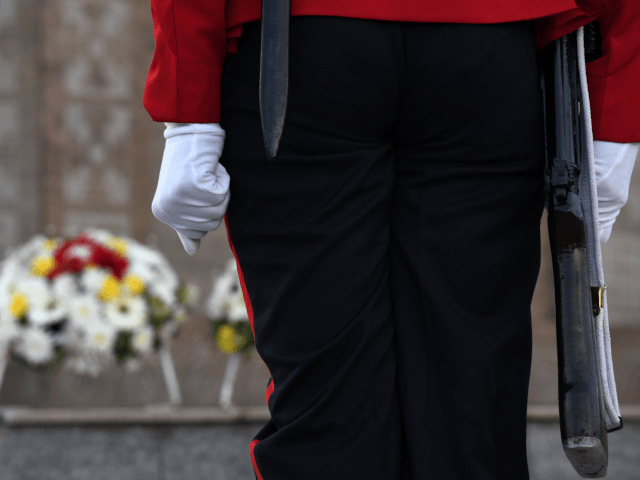The head of Sri Lanka’s State Intelligence Service (SIS) Sisira Mendis told that nation’s legislature on Wednesday that government intelligence and defense officials were aware of a jihadist plot to kill Christians on Easter Sunday, but no one did anything to prepare for it.
Mendis testified before the nation’s Parliamentary Select Committee on the Easter attacks, which killed over 250 people and targeted three churches and three hotels catering to Christians and foreigners. The Islamic State (ISIS) took credit for the attack and its leader, Abu Bakr al-Baghdadi, celebrated the killings in his first video appearance since 2014.
“A letter was received by my office on April 7 issued by the SIS, titled ‘Information of an alleged plan of attack’ which contained details of a possible bomb threat,” Mendis said, according to the Colombo Telegraph. “It was a Sunday and when I reported to work on Monday morning (April 8) I read it and was seeking a chance to talk about it with Defense Secretary.”
Mendis testified that former Defense Secretary Hemasiri Fernando led the meeting but State Minister for Defense Ruwan Wijewarena was not present. The secretaries answer to President Maithripala Sirisena, while the ministers answer to Prime Minister Ranil Wickremesinghe; following a power struggle between the two late last year, Sirisena stopped inviting members of Wickremesinghe’s cabinet to intelligence briefings.
“I had placed the letter I received on April 7 in front of me when I sat for the meeting. Since it was not brought up, when the meeting was about to close, I brought it up. I informed them that the gravity of this information can only be gauged by SIS Director,” Mendis said. He told the parliament that he went to both the head of defense and the nation’s police chief but no one followed up with his request to prioritize the threat. The attack, he said, “was never a main point for discussion” among the officials with the power to act on the threat.
The Parliamentary Select Committee in charge of the hearings is scheduled to publish a report on how the government failed to stop the attacks in three months’ time, after the hearings have concluded. Wickremesinghe’s United National Party has spearheaded the investigation along with a Marxist minor opposition party, Janatha Vimukthi Peramuna (JVP, or People’s Liberation Front). A delegation from India’s National Investigation Agency (NIA), believed to have relayed the intelligence about the ISIS attack to the Sri Lankan government, are scheduled to arrive in the country to testify on Wednesday.
Sirisena’s party, the Freedom Party, boycotted the hearings, led by Mahinda Rajapaksa, the former president Sirisena tried and failed to replace Wickremesinghe with in October.
The JVP filed a vote of no confidence against Sirisena last week over the negligence they say led to the successful Easter bombings.
Wednesday’s hearing was open to the press, an unprecedented step for such a security event. The hearings are a separate investigative process to one Sirisena is leading within his executive branch. One lawmaker, MP Wijeyadasa Rajapakshe, has demanded a fully independent probe of the activities prior to the Easter attacks that allowed police to avoid identifying and stopping the threat, as well as other religious criminal incidents such as the vandalization of Buddhist statues. Sri Lanka is a majority Buddhist nation with Hindu, Muslim, and Christian minorities. Extremist Muslim groups like National Thowheed Jamath (NTJ), the local group who allegedly coordinated the Easter attacks with ISIS, had mostly participated in Buddhist statue vandalism before the bombings.
“On information received from the investigations, a training camp operated by terrorist [NTJ leader and bombing mastermind] Zahran [Hashim] was found in Wanathawilluwa and a stock of explosives recovered,” Rajapakshe alleged. “The two suspects – Insaf Ahmed and Ilham Ahmed – who were the suicide bombers of Shangri-La and Cinnamon Grand hotels, were earlier arrested in connection with the Mawanella incident, but … they were released as a result of undue political influence.”
In April, shortly following the ISIS bombings, Rajapakshe claimed that he had intelligence indicating the Islamic State was active in Sri Lanka in 2016 and brought it before the federal government, but the president and senior officials dismissed his concerns as “tribal” and failed to act on them.
Rajapakshe’s intelligence suggested that NTJ had pledged allegiance to ISIS and that its leader Hashim had trained up to 34 jihadists.
Sirisena has rejected outside criticism of his executives, instead casting blame on former Defense Secretary Fernando and former General of Police Pujith Jayasundara, whose resignation he demanded after evidence that they had received intelligence warning of the attack and not acted to stop it surfaced. Mendis’ testimony coincides with the reports against both men.
Prior to his dismissal, Fernando attempted to argue that it was “quite impossible” for the government to protect Christian houses of worship and that hotels could pay for their own security, even in cases where the government is aware of threats against them.
Sirisena claimed that Fernando and Jayasundara never warned him of any impending attack.

COMMENTS
Please let us know if you're having issues with commenting.